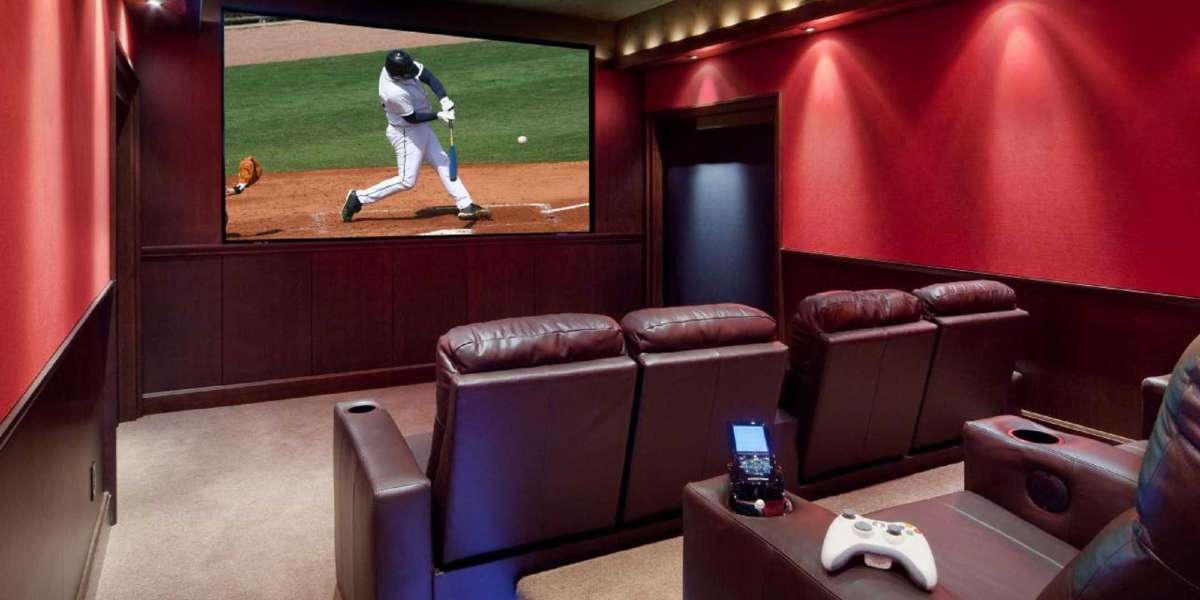As the temperatures drop and winter settles in, most homeowners focus on cozying up their spaces. But have you ever stopped to think about the unseen components that keep your home warm? Your heating ducts are crucial in maintaining comfort during those chilly months. However, many people overlook them until it’s too late. Delaying repairs might seem economical, but this decision can cost you more than just a few extra bucks down the line. Let’s explore why putting off Repair Heating Ducts is inconvenient and could lead to bigger financial headaches later on.
The Hidden Role of Ductwork in Home Heating Efficiency
Ductwork plays a crucial role in how efficiently your home is heated. Many homeowners overlook it, but these pathways for warm air are essential. When well-maintained, duct systems ensure every room receives the heat it needs.
Poorly functioning ducts can lead to significant energy loss. If leaks or blockages occur, warm air can escape before reaching its destination. This makes your heating system work harder and compromises comfort levels throughout your home.
Additionally, the design and layout of ductwork affect airflow patterns. When installed correctly, ductwork creates a balanced distribution, where warmth reaches all corners evenly. Ignoring this hidden aspect of heating efficiency can cost you more than just discomfort during winter months; it also impacts overall energy consumption.
Common Signs Your Heating Ducts Need Repair
Are you noticing cold spots in your home? This could be a sign that your heating ducts need repair. Uneven temperatures often indicate that air is not flowing efficiently through the duct system. If certain rooms feel significantly chillier than others, it’s time to investigate.
Another standard indicator is unusual noises coming from the vents. Rattling or whistling sounds might suggest loose connections or blockages within the ducts. If left unaddressed, these issues can escalate, leading to more costly repairs down the line.
Check for visible signs of damage around your ducts, such as cracks or holes. Even small leaks can greatly diminish heating efficiency and drive up energy costs. Paying attention to these signs will help maintain comfort in your home while preventing further complications later.
Energy Loss from Damaged or Leaky Ducts
Damaged or leaky ducts can significantly impact your home's energy efficiency. When air escapes through gaps and holes, your heating system must work harder to maintain a comfortable temperature. This unnecessary strain leads to higher energy usage.
Homeowners often don’t realize how much energy is wasted until they notice their utility bills rising dramatically. A small leak may initially seem insignificant, but the cumulative effect can be substantial over time. Your heating system becomes less effective as conditioned air fails to reach its intended destinations.
Moreover, inefficient ductwork contributes to uneven heating throughout your home. Some rooms may feel stuffy while others remain chilly—leading you to crank up the thermostat even more. This inefficiency cycle affects comfort and results in considerable financial loss with every passing month.
Rising Utility Bills Due to Inefficient Heating
When your heating ducts are compromised, the first noticeable impact is often on your utility bills. Damaged or leaky ducts force your heating system to work harder to maintain a comfortable temperature. This extra effort translates into higher energy consumption.
As temperatures drop, you might find yourself cranking up the thermostat. Unfortunately, this only exacerbates the problem. Inefficient ductwork allows warm air to escape before it reaches its intended destination. You’re not just wasting energy but also paying for heat that never warms your home.
Over time, these rising utility bills can add up significantly. The costs of neglecting duct repairs don't just stop at increased monthly expenses; they compound over seasons and years. Addressing duct issues promptly can yield substantial savings while keeping your home cozy during chilly months.
Increased Strain on Heating Systems and Shorter Lifespan
When heating ducts are damaged or leaky, your entire system has to work harder. This extra effort can increase wear and tear on your furnace or heat pump. Over time, this strain takes a toll, often resulting in more frequent breakdowns.
As components age faster due to the added stress, you might face unexpected repairs. A well-maintained heating system should run efficiently; however, when ductwork is compromised, that efficiency diminishes.
The cumulative effect of these issues could mean replacing your heating system sooner than anticipated. Investing in timely repairs for your ducts can save you from premature replacements and costly maintenance.
Financial Comparison of Immediate Repair vs Replace Heating Ducts
When faced with the decision to repair the heating ducts or Replace Heating Ducts entirely, understanding the financial implications is crucial. Immediate repairs are often a cost-effective solution. However, if underlying issues persist, they can lead to repeated expenses.
On the other hand, investing in replacement can feel daunting due to higher upfront costs. Yet, new ductwork typically guarantees improved efficiency and long-term savings on energy bills. A well-installed system minimizes leakage and ensures optimal performance.
Additionally, potential health risks associated with faulty ducts that might not be evident immediately should be considered. The longer you delay addressing duct issues, the more likely you will incur hidden costs related to indoor air quality and comfort disruptions down the line. Weighing these factors carefully can illuminate a path toward better investment decisions for your home’s heating needs.
Poor Indoor Air Quality and Health Implications
Damaged or leaky heating ducts can lead to significant indoor air quality issues. When ducts are compromised, they may draw in dust, allergens, and pollutants from attics or crawl spaces. These harmful particles circulate throughout the home, making breathing uncomfortable for residents.
Poor indoor air quality can trigger various health problems. Common symptoms include headaches, fatigue, allergies, and respiratory issues. The risks are even higher for individuals with asthma or other chronic conditions. Contaminants lurking in your ductwork might exacerbate these ailments.
Additionally, outdated filtration systems struggle to keep up with increased airborne debris caused by faulty ducts. This affects your health and creates an environment where germs thrive. Regularly repairing heating ducts is vital for maintaining a clean atmosphere and ensuring everyone breathes easier at home.
Uneven Heating and Reduced Comfort Levels
Uneven heating in your home can lead to frustrating temperature disparities. You might find one room cozy while another feels like an icebox. Such discomfort affects your daily living, making it hard to relax or enjoy time with family.
These temperature fluctuations often stem from damaged or leaky ducts. When air can’t flow efficiently through the system, certain areas receive less warmth than others. This creates annoying hot and cold spots and forces you to adjust your thermostat repeatedly, which can be exhausting.
Reduced comfort levels clearly indicate something is amiss with your heating ducts. Ignoring these signs may lead to a more significant problem, impacting your home's atmosphere and energy consumption. Addressing duct issues promptly ensures consistent warmth throughout every corner of your living space.
Risk of Mould and Pest Infestation in Ducts
Neglecting to repair the heating ducts can lead to serious issues, including mould growth. Moisture can accumulate in damaged or leaky ducts, creating a perfect breeding ground for mould spores. Once established, these spores can circulate throughout your home, posing health risks to you and your family.
Pest infestations are another concern associated with faulty ductwork. Rodents and insects often seek shelter in dark, hidden spaces like unsealed ducts, creating an unsanitary environment and increasing the likelihood of pest-related damage within your home.
The presence of mould and pests leads to poor indoor air quality. Breathing in contaminated air can aggravate allergies and respiratory conditions. Addressing duct repairs promptly is crucial for maintaining a healthy living space free from these unwanted hazards.
Long-Term Structural Damage from Moisture Buildup
Moisture buildup in your heating ducts can lead to severe long-term structural damage. When ducts are compromised, they become a breeding ground for excess moisture. This creates an environment ripe for mould and mildew growth, which can weaken the ducts' material.
As mould spreads, it may infiltrate nearby walls and ceilings, leading to costly repairs beyond ductwork. The longer you wait to repair the heating ducts that show signs of dampness or leaks, the more extensive this damage becomes. What might start as a minor issue could escalate into major renovations.
Additionally, moisture can affect insulation efficiency. Wet insulation loses its ability to trap heat effectively and may even sag or collapse over time. If left unaddressed, this not only harms your HVAC system's performance but also risks permanent damage to your home’s structure.
Conclusion
Delaying Repair Heating Ducts is a costly oversight that affects more than just your wallet. The ripple effects can impact energy efficiency, comfort, and indoor air quality. When ductwork isn’t functioning optimally, you might not realize how much you sacrifice in other areas. Consider the long-term implications for your home’s health and safety. Issues like mould growth or pest infestations can arise from neglected ducts, creating an environment fraught with risks. Homeowners should prioritize prompt repairs to avoid these hazardous situations. Timely maintenance can lead to significant savings while enhancing your living conditions. Whether improving airflow or reducing energy bills, addressing duct issues sooner rather than later pays off immensely in maintaining a healthy home atmosphere. Don't underestimate the importance of keeping those ducts in check!
FAQs
Understanding the importance of maintaining and repairing your ducts is key to your home's heating system. Here are five frequently asked questions about replacing heating ducts that can help clarify their significance.
What are the signs I need to replace my heating ducts?
If you notice inconsistent temperatures in different rooms, excessive dust accumulation, or visible damage to the ductwork, it's time to take action. These issues often indicate a need for replacement rather than simple repairs.
How much does it cost to repair or replace heating ducts?
Costs will vary based on the extent of damage and location. Repairing minor leaks may be less expensive upfront, but the costs can add up swiftly if there is a need to Replace Heating Ducts due to significant deterioration.
Can I repair my heating ducts?
While some minor fixes might be DIY-friendly—like sealing small holes with duct tape—most jobs require professional expertise. Proper insulation and sealing ensure optimal performance, which trained technicians best handle.
What materials should be considered for new duct installation?
Fibreglass-insulated metal ducts provide good thermal performance and durability. However, flexible duct systems offer versatility in tight spaces. After consulting with professionals, choose based on your home's needs and budget.
Will replacing my heating ducts improve air quality?
Yes! Newer duct systems can prevent mould growth and reduce allergen circulation throughout your home. This improves indoor air quality and enhances overall comfort levels in living spaces.
Maintaining healthy ductwork isn’t just about immediate comfort; it's an investment in long-term efficiency and well-being for you and your home.
Related Business Listings |







